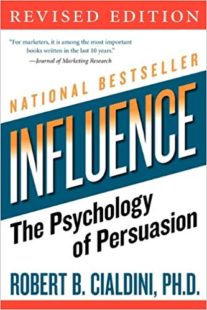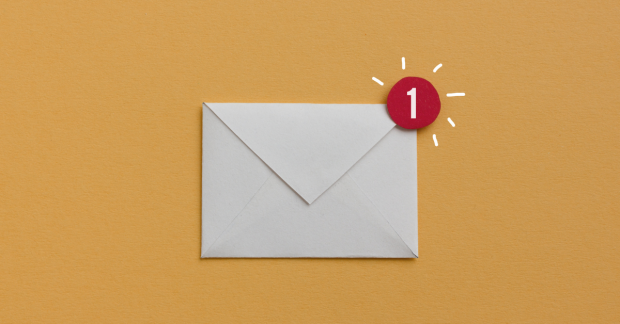Have you been sending out cold emails in masses, yet receive little to no response? There is a very specific formula to getting a cold email right, and we have it!

Influence
by Robert Cialdini
⏱ 15 minutes reading time
🎧 Audio version available
But before we begin learning how to write a cold email, let’s define what it is and what it does. A cold email is a message. You send it to prospects in an attempt to grow your business. There is a very specific distinction that keeps it from being spam.
Unlike ordinary, generic spam that almost never gets successful results, cold emails help you grow your company by connecting with prospective clients.
When do you send cold emails? When you have a particular business you want to speak to. It could be when you want to talk about a product with a public figure or to offer to sponsor a post. You could also send cold emails when you find someone on LinkedIn you wish to turn into a customer.
If you have tried sending cold emails and found little to no success, you may not be doing it right. Here how you can get your prospects to not just open and read through your email, but actually respond.
Make Sure You Have the Right Audience
This should be 101 for cold emails: finding the right audience. You could nail every aspect of your email, but if it’s not going out to the right people, you might as well be sending them straight to the trash.
When people send emails, all they have in mind is reaching the ultimate boss. However, that person may not have the time to respond to you. And in most cases, they aren’t necessarily in charge of the department you want.
When you target a prospect, find someone who is likely to actually listen to your pitch because they handle the relevant part of the business. Once you have their attention, your offer can be moved up the company chain of command.
Picking the right audience means knowing exactly whom you’re writing to.
It’s also important to know that each client is unique. That means they have vastly different needs, company sizes, and budgets. Thus, they need different approaches.
You need to stand out among the many cold emails they receive on a daily basis. Do your due diligence and find common ground to work up to a conversation and to an eventual business relationship.
Have an Attention-Grabbing Subject Line
All right, you know who you want to send the email to. This is the next step: writing a captivating, attention-grabbing subject line.
Overall, it should be small enough to be easily comprehensible and eye-catching. It should be at about three to seven words.
It goes without saying that they need to be of utmost relevance to the prospect.
A subject line needs to be:
- Intriguing
- Genuine (aka human-like, not generic)
- Tied to the subject of the rest of the email
- And if you can, an acknowledgment of the prospect’s expertise.
The reason why you need to put a lot of thought into your subject line is that it’s the very first thing your prospect sees. It’s what makes them decide if they want to open your cold email or not. Essentially, it’s your first impression, so make it count.
It needs to be a hook– kind of like how magazine articles, newspaper ads, and marketing posts are catchy. Not sure what to write in your subject line? Here are a few strategies. You can implement more than one at a time.
Make it personal. Your first strategy should be about connecting with the recipient of the email. Everyone wants to be acknowledged and seen as a valuable individual. Treat them that way.
Some people use humor to add a personal touch to make their cold emails compelling. Others promise instant gratification to hook people.
The marketing strategy of using FOMO to your advantage is an age-old technique. FOMO, the fear of missing out, makes a person not just read your email, but to respond to it for fear of losing out on a valuable offer.
Take Guess’ compelling line, “Tonight only: a denim lover’s dream.” A person would be more inclined to click, knowing that the offer is limited.
Keep Readers Interested With A Compelling Opening Line
Your subject line has effectively drawn the recipient of the email in. Now, you have to keep them interested.
The opening line is arguably more important because it’s what the recipient sees as their preview.
While sometimes it’s necessary to start with a greeting and announce your name , it’s not the best opening to lead with. To hold a reader’s attention long enough to get them to race to read past that first sentence, your introduction needs to stand out.
Don’t Be Overly Market-y
People can recognize an overly market-y sounding email the moment they get the notification for it.
Although they’re called “cold emails,” you want to make them feel like you’re not sending a copy-paste marketing template. Consider changing your phrasing so they sound more like you’re speaking to them. Be friendly. A lot of people find success with adding nice greetings or a touch of humor in the form of friendly slang and attention-grabbing idioms.
Have a Clever Introduction
A clever introduction is non-negotiable. Of course, it’s difficult to find a suitable start to a cold email. You want to dive right into business details and why your business is so exciting.
A good intro is imperative. It shouldn’t exceed three lines. And it should be all about the prospect. Grab their attention cleverly by acknowledging them, their expertise, their work, and the company they work for.
Whoever said flattery doesn’t get you anywhere wasn’t entirely honest. It will at least make them pay attention long enough to see your product.
Offer a Solution
Finally, we’ve reached the actual body of the email. The next ingredient to making a spectacular email that will guarantee you’ll get responses is this: make an entirely new draft.
Your current method may be stating your product or service’s features. However, you need to change your approach so that it appears you’re offering a personalized solution to a prospect’s problem instead.
You want to make them feel like they’ll benefit from responding to you. Stating what the benefits are for them makes you stand out from what would otherwise be spam. This is how you present why they should choose you.
If your method isn’t working, that’s okay! It just means that you haven’t found your winner yet. If something isn’t working, try another strategy, until you find one that works for you. The best thing about cold emails is that you can experiment.
We have one word for this part: metrics. They’ll help you distinguish between a successful strategy and a failed one. As you test out new approaches, keep track of the responses they gather. You’ll notice a difference. You can also see the open rate of your emails and be able to play with your opening and subject lines.
End With a Call-To-Action
Almost there! The last thing you need in a cold email that gets responses is a call-to-action. A call to action puts the ball in the prospect’s court while assuring them that you’re ready to take care of the details.
What Is Snapreads?

With the Snapreads app, you get the key insights from the best nonfiction books in minutes, not hours or days. Our experts transform these books into quick, memorable, easy-to-understand insights you can read when you have the time or listen to them on the go.


